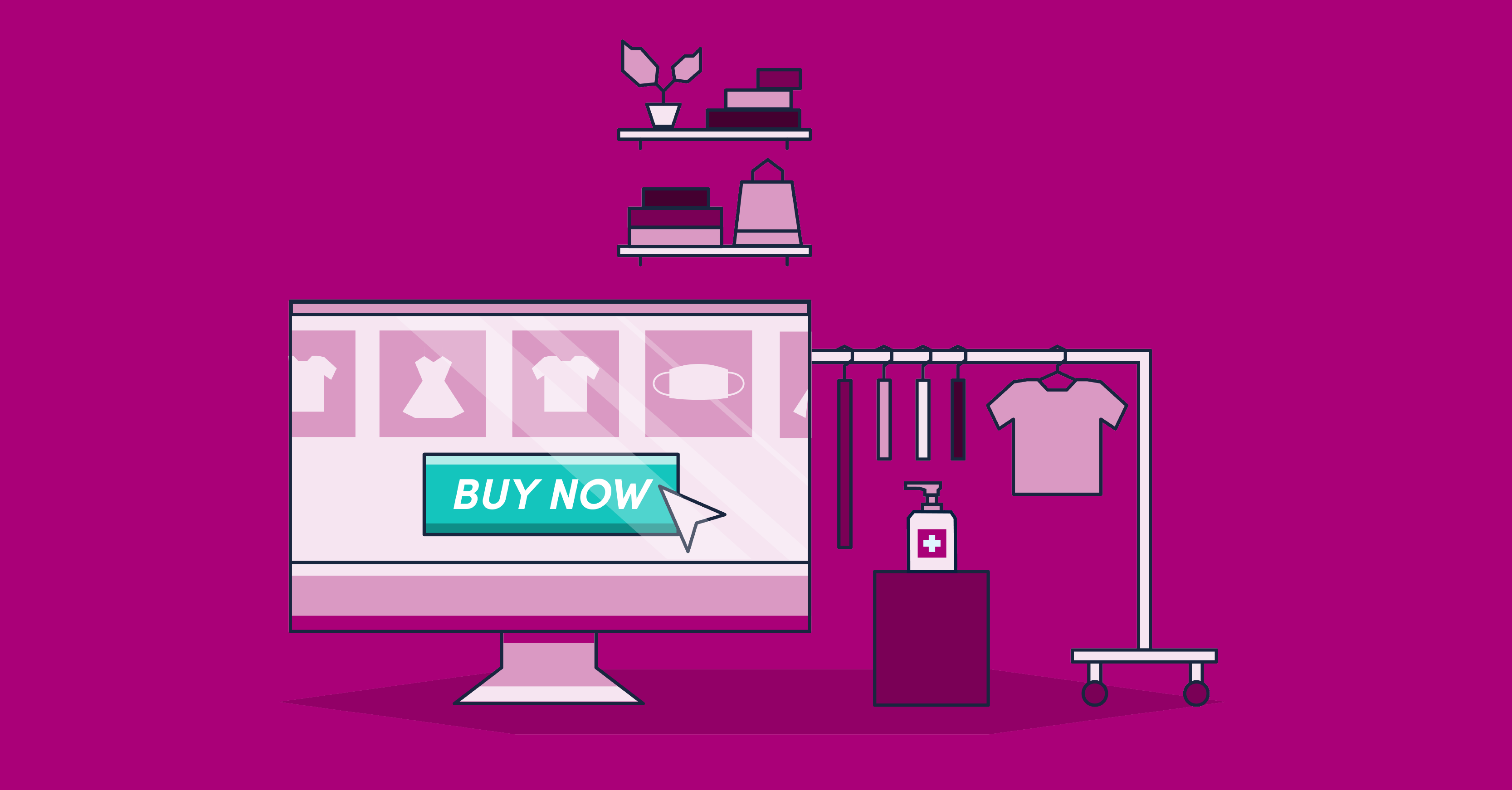How Have the UK Lockdowns Impacted our Shopping Behaviour?

In the UK, like many countries, we’ve found ourselves dipping in and out of restrictions for nearly ten months thanks to the pandemic. The ongoing tier changes and lockdowns have hit our highstreets hard, causing a major blow to hospitality venues and retail stores alike.
But how have the lockdowns influenced online shopping behaviour? We took a look at our own data and industry analysis to see when consumers were most active, and how key retail dates were impacted.
March lockdown put a spring in our step
During lockdown one, between March and July 2020, our data indicates a significant increase in online shopping. During those five months, we saw an increase of 56% in our software compared to 2019. On 23rd March alone – the first day of lockdown – usage in our address verification product shot up by 95% compared to the previous year.
The stay at home orders, combined with the warmer weather, had us all filling our shopping carts like never before. With people spending more time at home, home improvement and DIY spending soared and UK homeowners reportedly splurged up to £7.5 billion more in 2020 than in 2019 according to HomeServe.
With less income to spend on socialising and leisure, and Google Trends reporting a spike in people searching for ‘things to do during lockdown’, digital and content subscriptions also saw a rise in popularity. This carried on throughout the year, with Amazon winning 49% of new TV streaming customers in the run up to Christmas according to a report by The Guardian.
Food and drink stores, supermarkets, and specialist retailers – including gift shops and florists – all saw an uplift too (Barclaycard).
There was no dashing to the store at Christmas
Last year, we published our Christmas Unwrapped report, which explored how the 2020 festive shopping season might look amid the pandemic.
In contrast to the long queues and bustling highstreets we’ve all become accustomed to at Christmas time, our research indicated that 2020 would be a bumper year for online transactions.
Of the 1, 000 consumers we spoke to, more than a third said they would avoid Christmas shopping in-store, with 70% opting to do their shopping online instead.
And this prediction very much echoes reality, with usage across all of our platforms doubling in November and December 2020 compared to 2019. According to Nielsen, December 2020 was the biggest Christmas on record for UK supermarkets, while the British Retail Consortium reported that online non-food sales jumped by 44.8% in December.
Retail Week reported that click-and-collect was more popular than ever during Christmas 2020 and a vital channel for retailers with many stores closed. Capitalising on this convenient shopping method was Argos who experienced a 24% uplift in click-and-collect orders in the week leading up to Christmas.
Last week, Hotel Chocolat recorded a strong festive trading period, reporting a group revenue rise of 11% over the 26 weeks to 27th December. Hotel Chocolat owners attribute this success to switching the focus to the brand’s online presence, improving user experience and flexing its multichannel method.
Lockdown Black Friday paid dividends for early bird retailers
Amazon first introduced Black Friday offers to their UK customers in 2010 and since then, it has become a firm date in the retail calendar.
With the UK once again forced into lockdown in November, it’s no surprise that 2020’s Black Friday was the biggest yet when it came to online sales.
On Black Friday in the UK, we experienced a 51% increase in our software usage compared to 2019. Globally, we hit 413 million server requests – the largest day we’ve ever had.
Looking to capitalise on lockdown two, and shift stock from previous seasons, many online retailers kicked off their sales early. Industry association for online retail, IMRG, reported that 4.3% of UK retailers were running a Black Friday campaign online as early as 4th November.
Very.co.uk launched its Black Friday event on 5th November – the day the UK lockdown started. And Gymshark held its Black Friday sale two weeks early, creating mass excitement through a clever data-driven content marketing strategy.
There’s no doubting that with less income to spend on festive social gatherings and winter breaks, consumers well and truly embraced Black Friday 2020 and used the early discounts to get organised for Christmas.
Are the January sales a thing of the past?
While Black Friday provided a much-needed boost for retailers with an online presence, the January sales didn’t have quite the same impact.
According to the Confederation of British Industry, retail sales fell flat in January with the challenging Golden Quarter extending into the New Year. Our own data also indicates a slight decrease in usage compared to 2019.
The January sales have long been in decline and the growing popularity of Black Friday has undoubtedly played a part in that. Retailers running discounts throughout the year to combat the negative impact of the pandemic, as well as Brexit and the uncertainty it posed, would have certainly compounded the issue.
What does 2021 have in store?
Matthew Furneaux, Director, Location Intelligence at GBG, comments: “It’s still unclear exactly how 2021 will play out and whether there will be any further lockdowns for the UK. But with the vaccine roll out underway, there is a quiet hope amongst government and industries that we could be back to some sort of ‘normal’ by spring.
“As 2020 proved, surges in online transactions during lockdowns revolutionised how businesses responded to unpredictable demand and highlighted the disparity between those with an agile digital-first approach and those without.
“Going forward into 2021, retailers will need to invest in their online customer journey to truly futureproof their businesses.”
From address verification to data cleanse and maintenance, Loqate has helped over 19,000 businesses worldwide enhance digital customer experience, maximise operational efficiency and boost profits. Discover what we could do for you with our free, no-obligation trial.